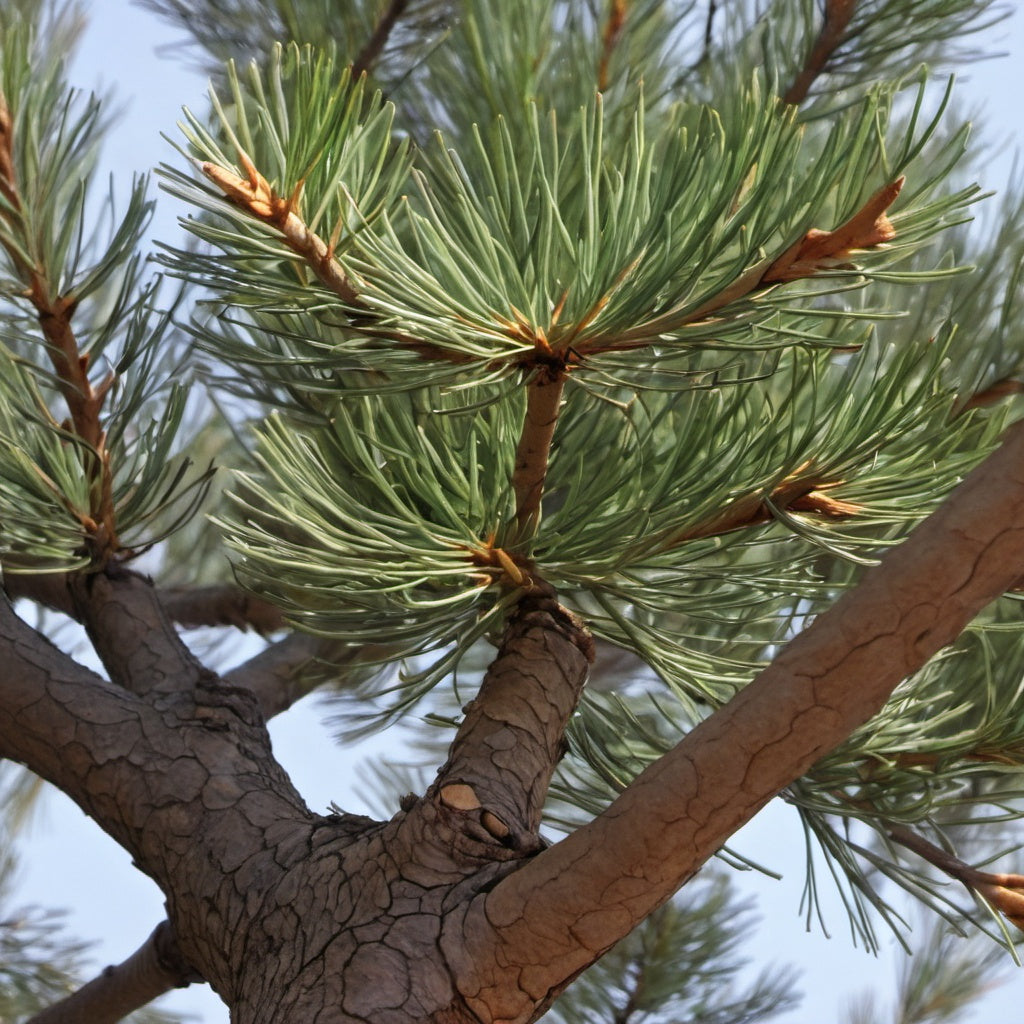Calabrian Pine Tree Seeds
Calabrian Pine Tree Seeds
Couldn't load pickup availability
Calabrian Pine Tree Seeds
(Pinus halepensis brutia)
The Calabrian Pine tree (scientific name: Pinus brutia), also known as the Turkish pine, is a fast-growing conifer native to the eastern Mediterranean region. Its range includes parts of southern Italy (especially Calabria, from which it gets its name), Greece, Turkey, Cyprus, Lebanon, and coastal areas of the Middle East.
Key Features:
Pinus halepensis brutia is a natural hybrid between the Aleppo pine (Pinus halepensis) and the Turkish pine (Pinus brutia), found predominantly in the Mediterranean region. This hybrid combines traits from both parent species, thriving in the warm, arid, and rocky landscapes typical of the area.
It is a medium-sized conifer growing 65 to 82 feet tall, with slender, paired needles and conical, woody seed cones. The bark is reddish-brown, deeply fissured, and highly resilient, reflecting its adaptability to harsh environments, including resistance to drought and fire. Its hybrid nature enables it to grow in diverse conditions, contributing to soil stabilization and preventing erosion.
Ecologically, Pinus halepensis brutia plays a significant role in Mediterranean forest ecosystems by offering shade, habitat, and food sources for wildlife. Additionally, it is valuable in reforestation and landscape restoration projects due to its hardiness and ability to thrive on poor soils.
This hybrid is also appreciated for its resin, historically used for various applications, and its wood, valued in construction and as a fuel source. Its aesthetic appeal and drought resistance have made it a popular choice for ornamental planting in dry climates.
Uses:
- Wood: The wood of the Calabrian pine is used for construction, furniture, and paper production due to its durability and versatility.
- Resin: The tree is a source of resin, traditionally used in making retsina wine in Greece and in industrial applications.
- Erosion Control: Because of its adaptability to harsh conditions, it is commonly planted for soil stabilization in erosion-prone areas.
Ecological Importance:
- The tree is an important component of Mediterranean ecosystems, providing habitat for various bird and insect species.
- It is drought-tolerant and can thrive in areas with challenging environmental conditions, making it a key species for combating desertification.
Zones: 8 to 10
Germination Range: 60-80%
Stratification Requirement: Seed requires no pre-treatment to germinate. Light increases germination %. 100 seeds in dark = 50% germination 100 seeds in light= 72% germination.
Planting Instructions:
Prepare a well-draining growing medium. A mix of sandy soil, perlite, and compost works well, as these pines prefer low-nutrient soils similar to their native habitat. Sow the seeds about 1–2 cm (0.4–0.8 inches) deep, ensuring they are spaced adequately if planting multiple seeds in the same container. Keep the soil consistently moist but not waterlogged, as excessive water can lead to fungal growth and seed rot. Place the containers in a sunny location, or use grow lights if indoors, to ensure they receive sufficient light for growth.
Germination usually occurs within 2–4 weeks, though this can vary. Once seedlings emerge, gradually reduce watering to avoid over-saturation and allow the soil to dry slightly between waterings. When the seedlings develop several sets of true leaves and are strong enough to handle, they can be transplanted into larger pots or directly into the ground. Select a site with full sun exposure and well-drained soil for outdoor planting, keeping in mind the mature size of the tree to avoid crowding.
Monitor the young trees closely during their first few years, as they are more vulnerable to drought, pests, and diseases. Mulching around the base can help retain soil moisture and suppress weeds, but avoid placing mulch directly against the stem to prevent rot. With proper care, Calabrian Pine trees can grow into resilient, hardy specimens, contributing beauty and ecological value to their surroundings.
Share


